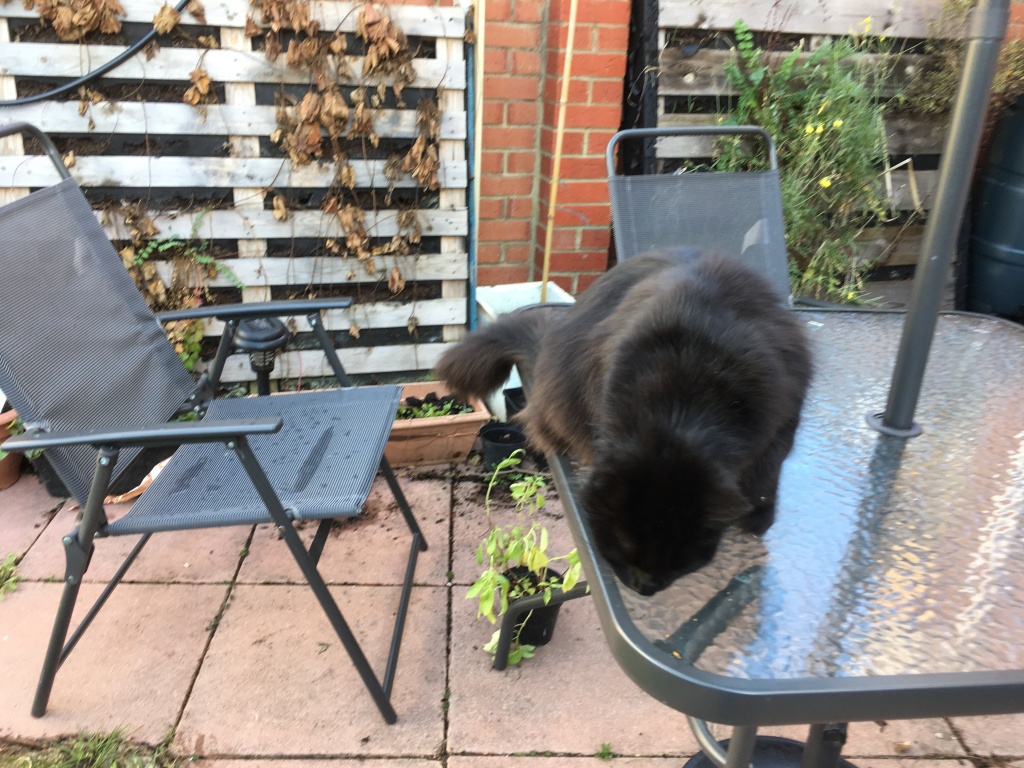
Rio, who has been mistaken by visitors as our cat because he was hanging around so much
Short version: Some of the issues caused by creatures in the garden and some of the ways I’ve explored to combat them, with varied success.
Before I get into this I would like to make it clear that I’m actually rather fond of animals…. We would probably have a pet if there weren’t allergies in the family. Doctors have advised against it. I even like cats (you might not think so whilst reading this), despite being them being little predators that terrorise birds and frogs/toads, which are beneficial to an edible garden. Annoyingly, they don’t seem to be particularly useful for deterring rats to the area. Or actually I’d love a couple of chickens – but little one is allergic to eggs so…er…. Anyway, there are things that certain creatures do that rile me up. This list was compiled from December alone:
Poo – I had to remove six poos from a single vegetable bed in one of the weeks, a total of 15 poos in December. I haven’t put in a photo because that’s just gross. Sadly, cat poo does not do the vegetable bed any good. Their faeces do not add much in the way of nutrients to the soil. They may also contain parasites that can infect humans or contain bacteria that is harmful. Sometimes the waste is slightly buried and is only found because of the smell. Sometimes it is just plonked on the surface. I’ve heard that cats that consider themselves to be the alpha of the area will not bury its poo. If they had the manners to bury their waste deep in the soil, without destroying the plants I don’t think I’d mind so much.
The smell like something had died – The neighbour who lives 2 doors down from me has a garden backing onto hers with a rat’s nest in it. You can then imagine my horror when in December I found a dead rat in my garden, under my child’s swing. I smelt it first. It was also the week of many poos so I thought it was a particular disgusting smelly cat gift. The smell was vile and overwhelming and gave new insight into the phrase ’smells like something has died’. Rats do pose a health risk with their leaky urine, though I haven’t seen any other evidence of their presence.
Digging – Now I don’t know whether the next culprit is a rat, a mouse or a squirrel. I have seen 2 out of 3 of these alive in the garden. One of these creatures has been digging up my pots. I sowed a whole load of seeds October / November. The pots were all full of seedlings. They are now mostly dead, and the soil is scattered everywhere.
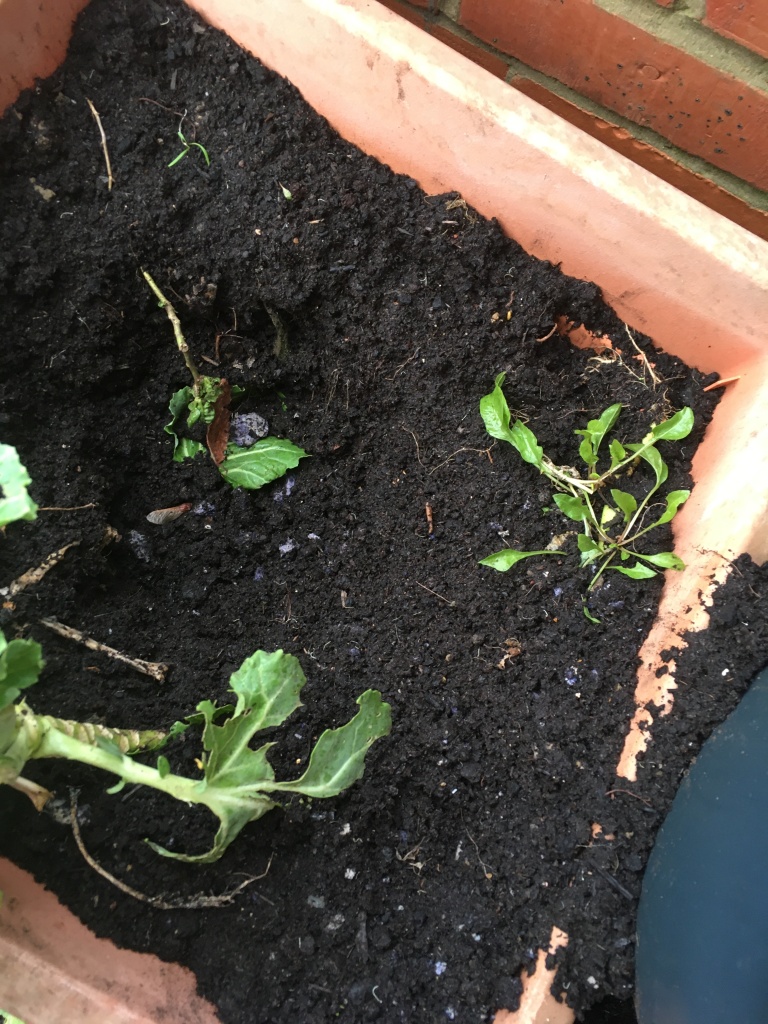
2 pictures of digging… 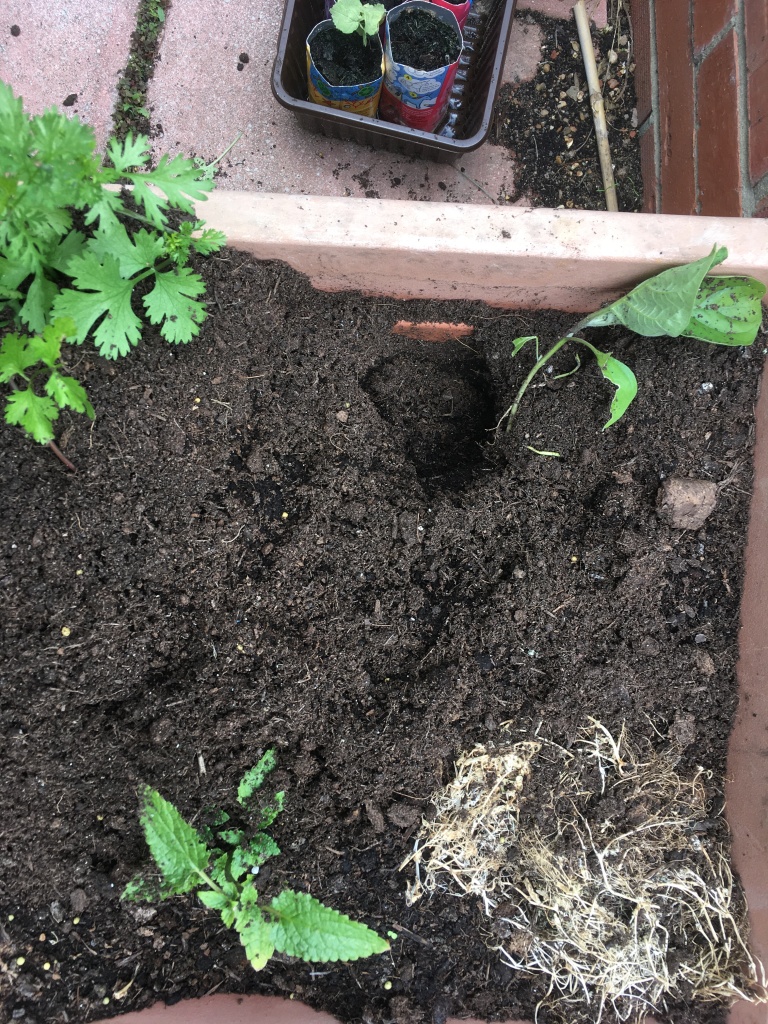
… no pics of poo or dead rats 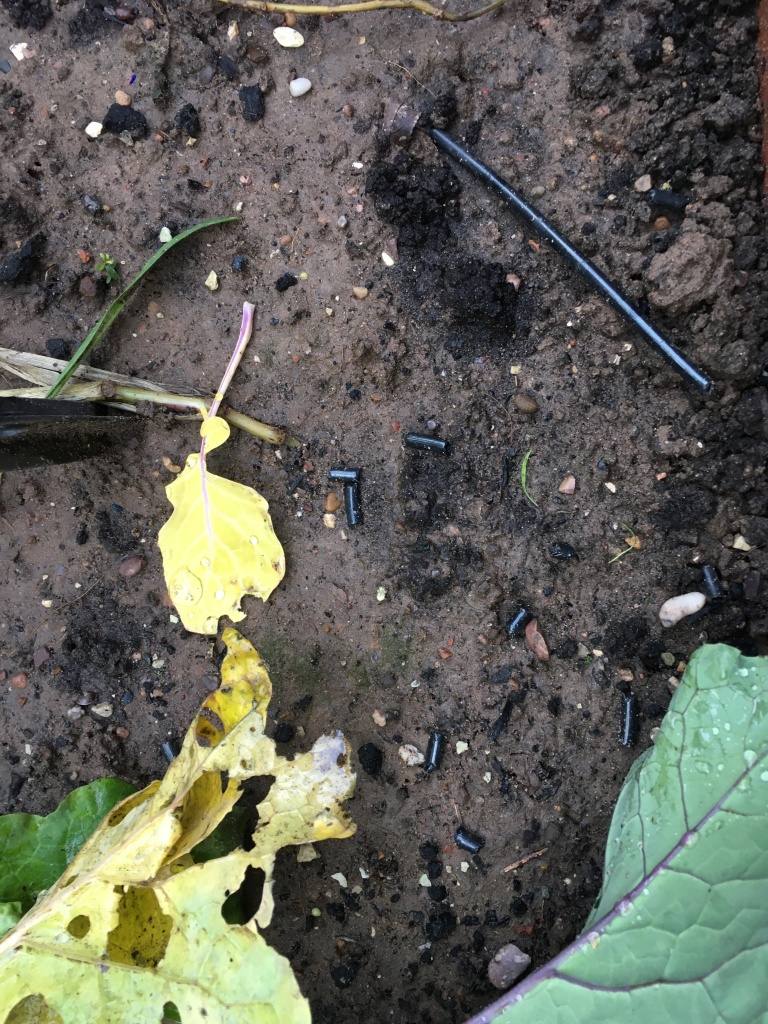
pipe chewed into many sections
Destruction – I installed a water dripper system. It saves water as it drips it directly onto the soil rather than the leaves. Not soaking the leaves also reduces powdery mildew and fungus problems and it also saves lots of time in the summer and saves the lives of plants when we are busy or when we go away. A few of these pipes have been torn to shreds. Some creature has been gnawing at them, presumably to get to the water. I doubt I’ll be using it again before May, but it’s annoying that they’re going to need replacing.
Maybe these are problems you can relate to. The cat poo is the thing that bothers me the most, probably because, at its worst it requires daily removal. It is disgusting and I don’t even know where to put it after. There doesn’t seem to be any advantage to the garden. They don’t deter the other unwanted creatures, even though I have seen 6 different cats in the garden. They just dig up plants and poo. Occasionally they spray.
This is a list of how well things have worked for us:
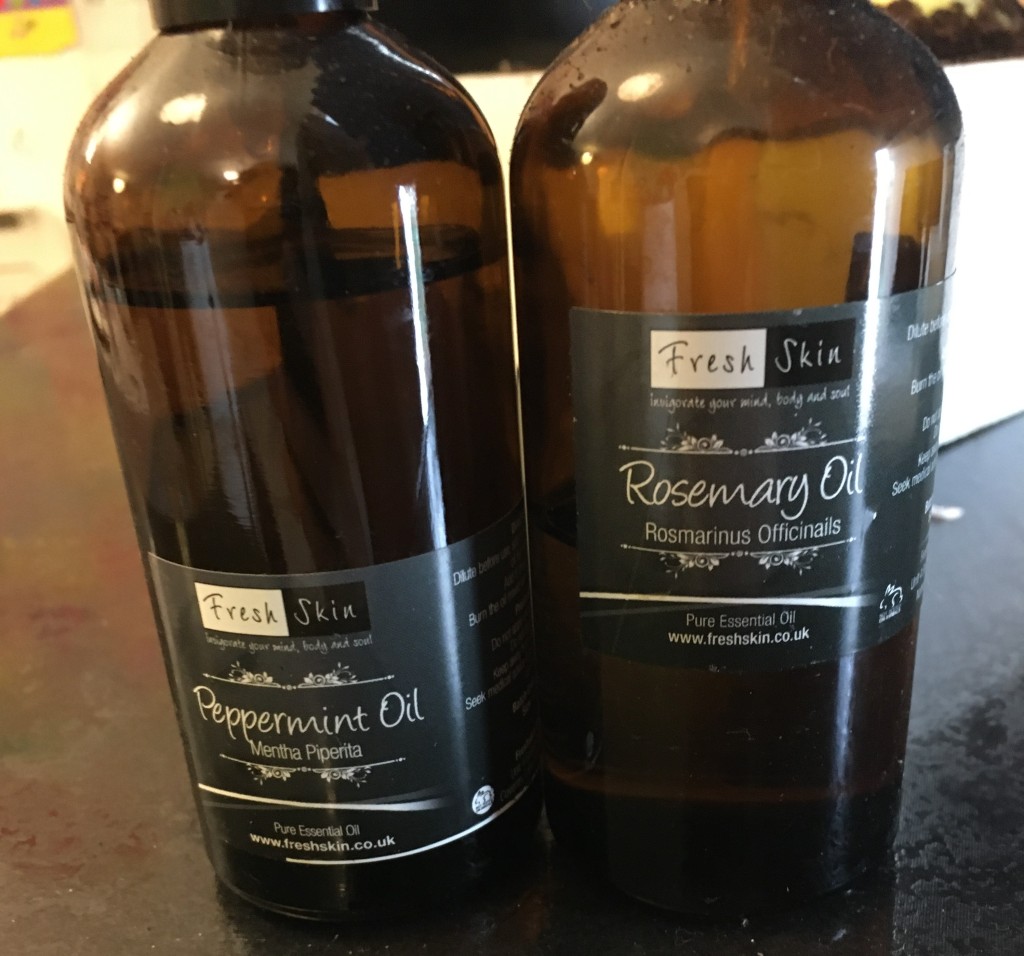
Olfactory deterrents
Most mammals have sensitive noses so strong smells can be a deterrent. I’ve tried Rosemary oil, peppermint oil, orange oil and chilli powder. They did seem to keep cat poos down, but as soon as there was a rain or over too short a period (about a week) they were no longer effective. They kept the other diggers away too, but only for the same time period. I have read that planting lots of mint can help. It hasn’t in our garden, nor has lavender or rosemary bushes. Maybe we need more.
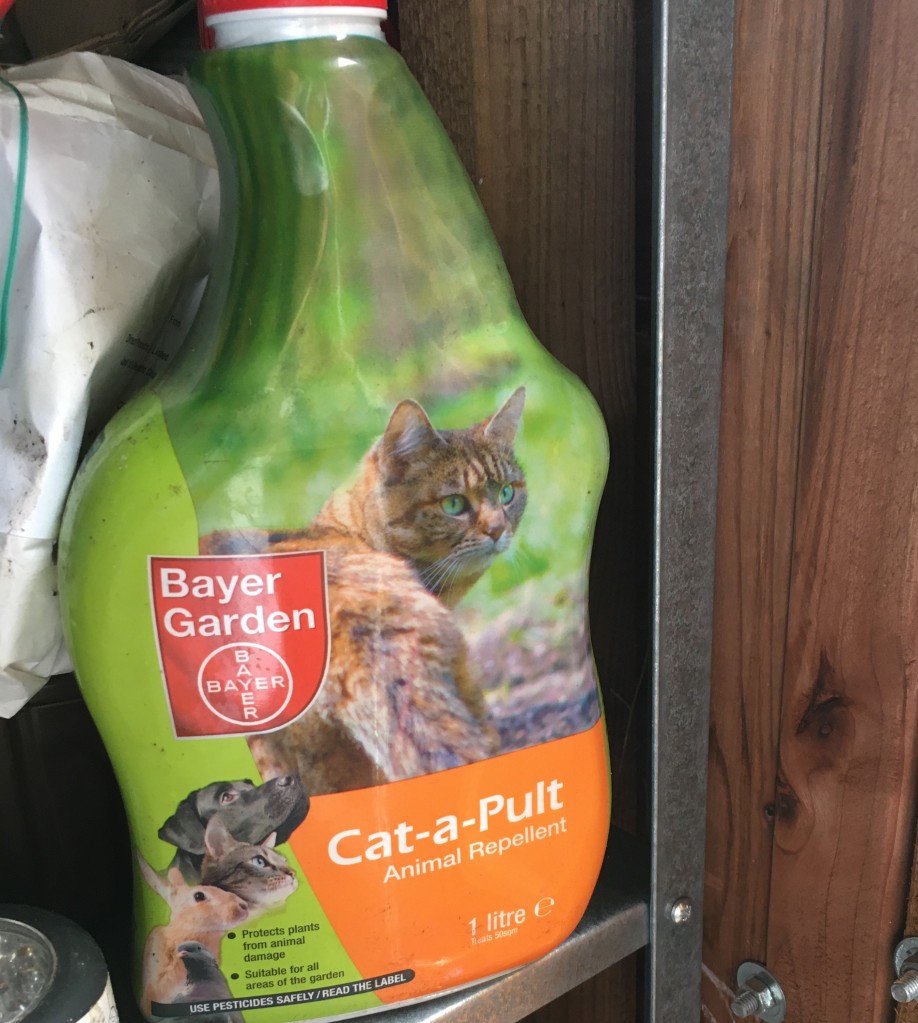
Chemical deterrents
This is also smell based but seems more dangerous than the plant based chilli or oils. We’ve tried something called catapult – which claims to deter cats with aluminium sulphate. You spray it liberally on surfaces and reapply after rain or a couple of weeks. I can’t say I noticed a huge improvement. There were still some visits. Because it performed less well than the oils and chilli we gave up on it pretty quickly because we do try and avoid chemicals. The label does also say it deters birds too which is not something we want to do.
We also tried something called ‘Silent Roar’ about 5 years ago. These are pellets that look like blobs of ceramic poo that have been soaked in lion dung. They instruct you to wear gloves when distributing them for both hygiene and so that the cats don’t smell your scent on them. They also advise not to let the cats see you dispensing as the cats then know it’s just you pretending to be a lion, which we found hilarious. These were effective for about 2 months but they’re not cheap and you don’t get much in a bag. It was only feasible in our previous tiny garden.
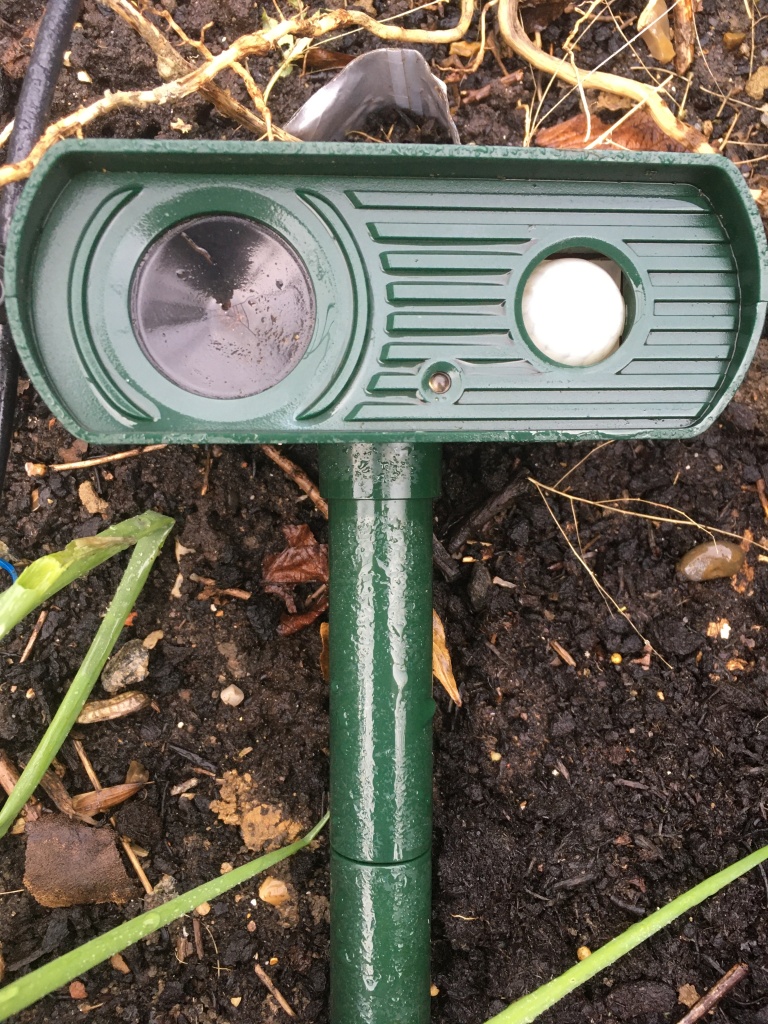
Sonic deterrents
There are motion detecting, high frequency sound emitters that are beyond human hearing. The cats can hear them, unfortunately they don’t seem to mind them. They showed their lack of dissuasion by pooing next to one of them. Holes are also dug in pots nearby, so it doesn’t bother the digging creatures either.
Physical deterrents
Not wanting to use chemicals or deter birds we then began looking at physical barriers.
Bamboo skewers – We hoped that these would form a forest of discouraging spikes. When placed densely enough the cats avoid the soil somewhat, but it did little to deter the small digging and chewing creatures.
Chicken wire – I had hoped that this would discourage digging but allow the seedlings to come through. It’s hard to believe, but as I was installing it over some pots, I smelt something rather whiffy. I turned to see a cat. That cat had just dropped a steaming pile of protest on top of the chicken wire of the pot that I had only just finished. This did stop any digging though. Gave up on it as it was very difficult to weed and plant new things. Also some plants got stuck under the mesh.
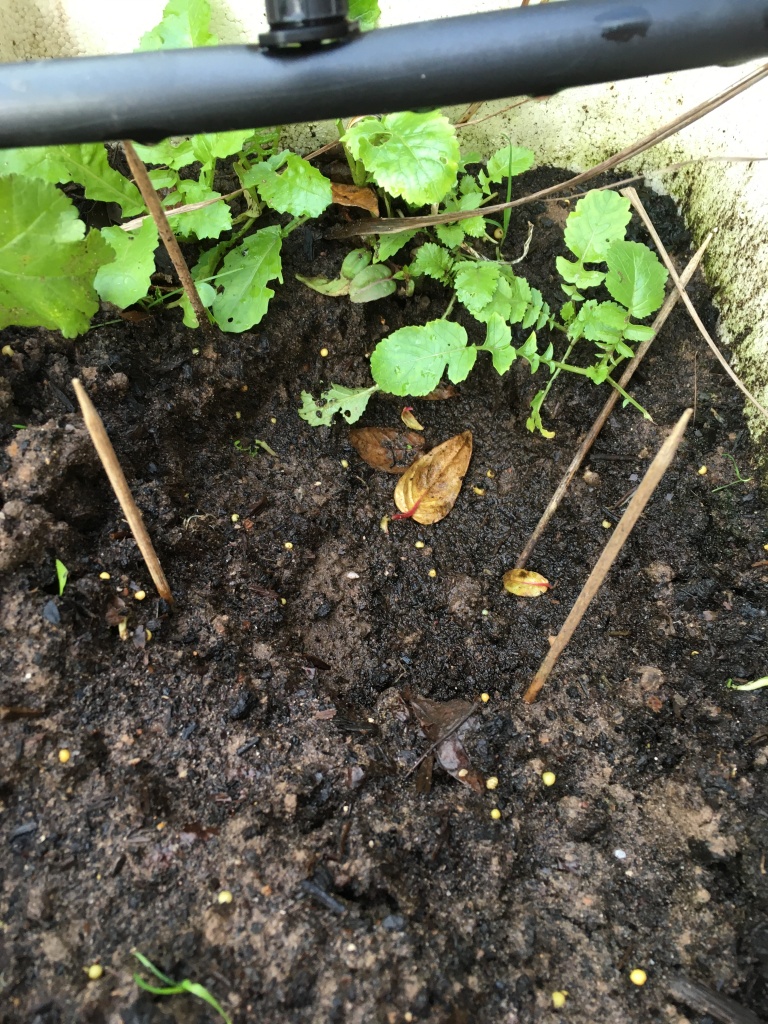
skewers thrown about by cats 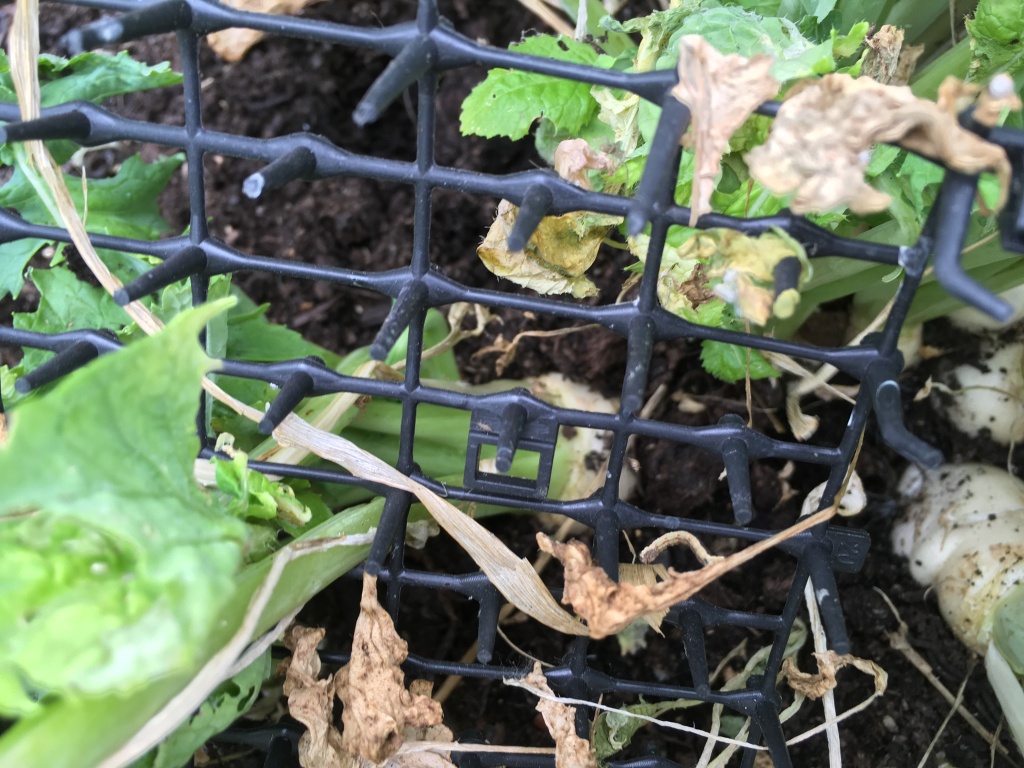
prickle pad 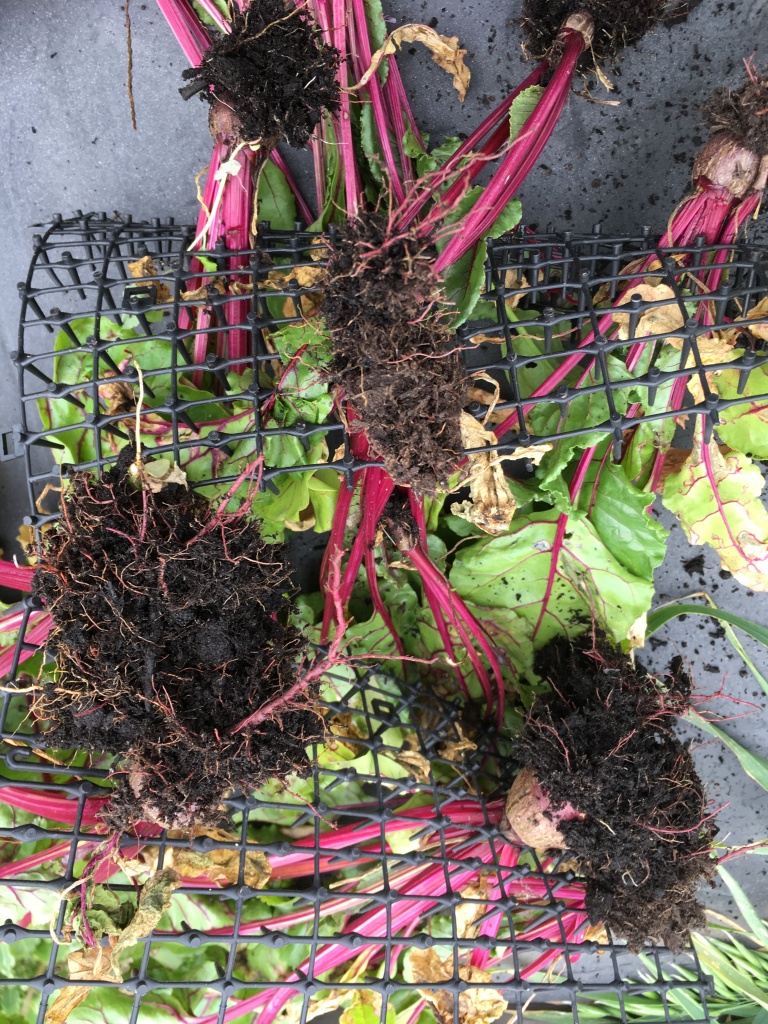
Yeah, I didn’t think that one through.
Prickle pads – this is plastic mesh that can be placed on the surface of the soil. All over the surface are little spikes. They’re not sharp or hard enough to cause damage to creatures (or me), but they are uncomfortable. This did stop the pooing and the digging – but there is the same problem of getting to the soil it and plants get stuck. This is not something you want to put on top of beetroots.
All of these things are not great for the environment either as they require energy and material to produce and transport. I have kept all the bits and will continue to use them until they fall apart, but I don’t think they’re worth buying more of in the future.
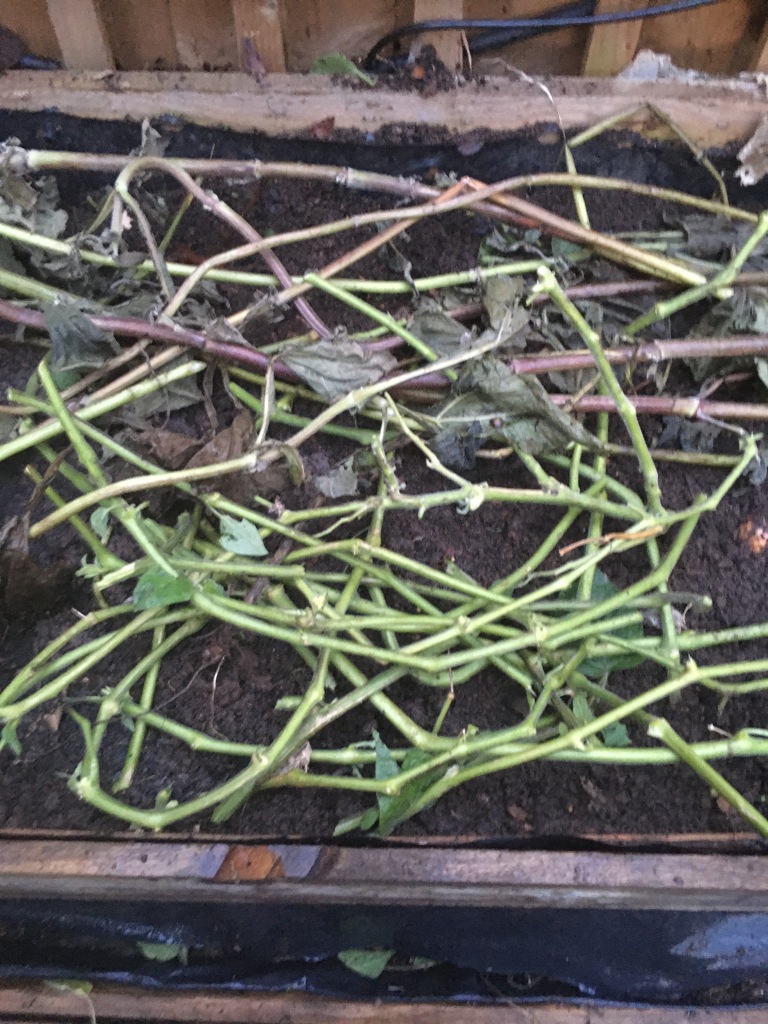
Layer of uncomfortable prunings – this works well for us…ish. Whenever there is bare soil to be left for a little while I’ll take the stems and twigs of whatever was last harvested or cleared from the garden and use that to cover the soil. This stops all the digging and pooing. It’s free and it’s environmentally friendly. The only problem is that it can’t remain in place when seedlings are growing as it blocks the light and squishes the seedlings.
Motion activated water sprayer
This is our winner for the cat poo problem. You hook up a hose pipe from the outdoor tap to the little contraption on a spike. It has a motion detector, which when activated sends a jet of water in an arc across the garden. On this particular model you can fiddle with the distance of jet (which is also dependent on how open your tap is too), the width of the arc and the sensitivity of the motion detector. The results are long lasting. This is actually our second one. After 3 years of mistreatment bits had snapped off, it had started leaking and it just wasn’t doing the job anymore. Whenever we have had it running the garden is feline excrement free. The best thing about it is that the cats’ behaviour changes. Even when the water hasn’t been switched on, I’ve seen a cat on the fence bolt when it has heard the click of activation. Our last one had been out of commission since June and the cat poos started appearing again about November. We installed the new one just before Christmas. The water was on for 2 weeks, on and off for a week and now has been completely off for a week. Since the new one was installed there has been one poo. I was a bit sad about this, but I had to admire the audacity of the cat. It had made its way over the shed and garden room roof, dropped down undetected into a pot that was behind the sprayer and left a poo there. That soil has now been covered with twigs. I’m not sure if the smaller creatures activate it but maybe they’re scared off by the spray when it happens.
It’s a bit of a bitter victory, as there are 3 cats on the road that we are rather fond of. They haven’t visited us in the past month, unsurprisingly. One of them used to visit still when the last sprayer was in place when we were in the garden. He had worked out that when there were humans about, the garden was safe. The other 2 are young and new to the road (so also new to the sprayer), so you never know. Maybe we can reach a happy medium. I like them. I just don’t like their poo.
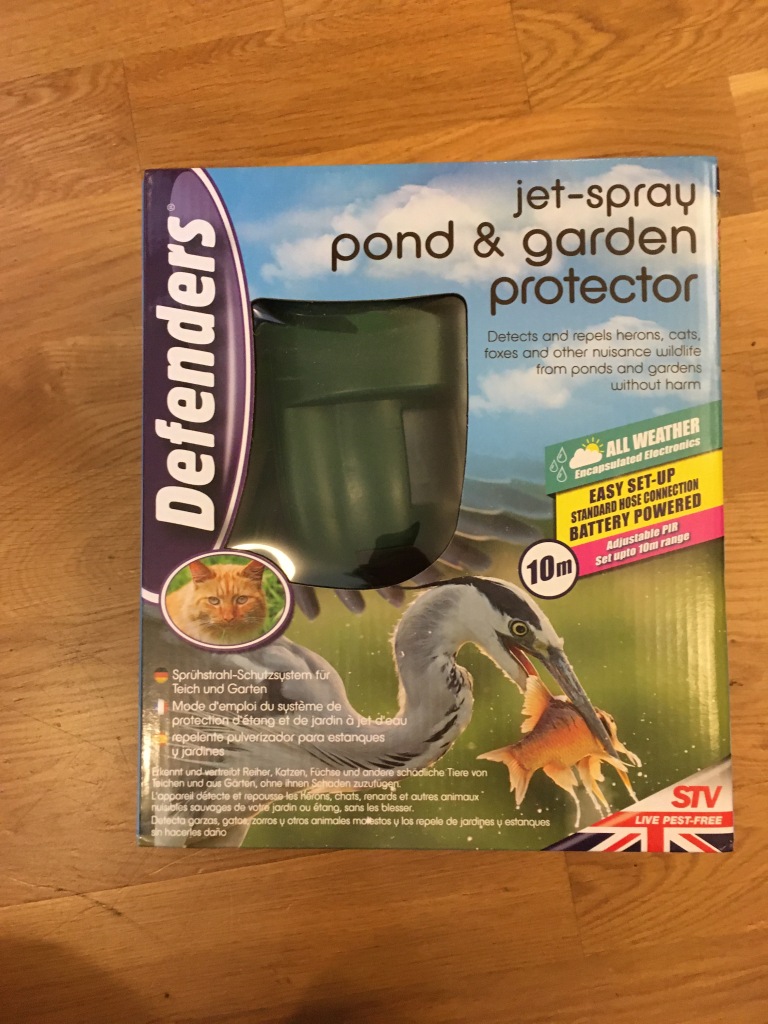
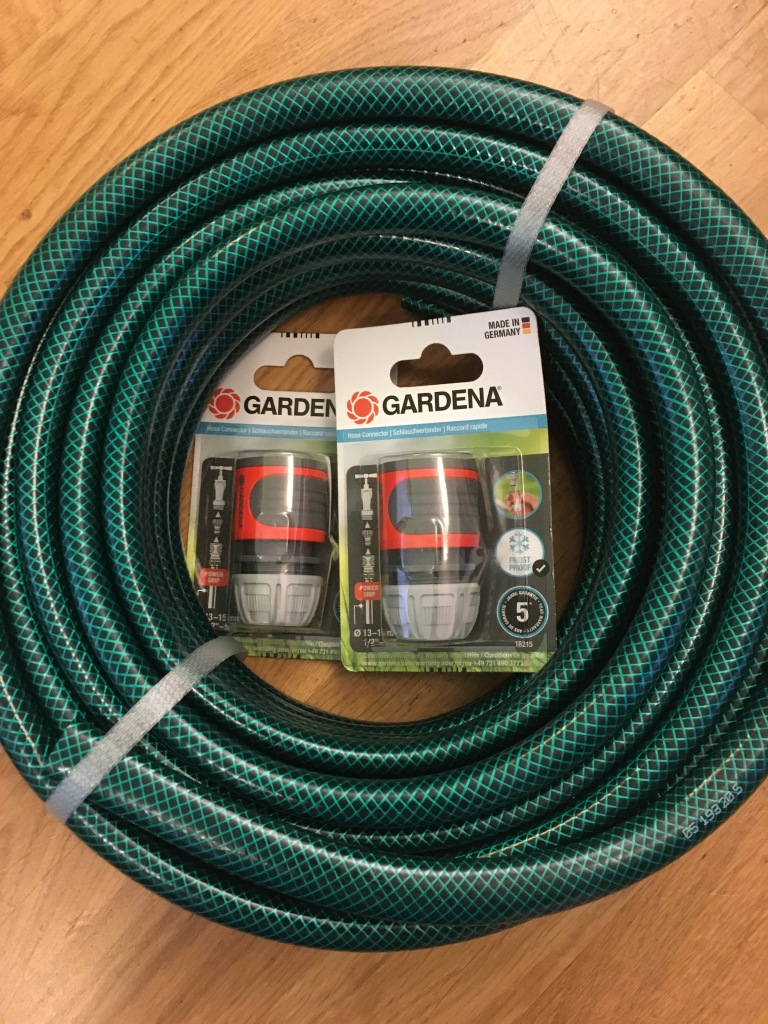
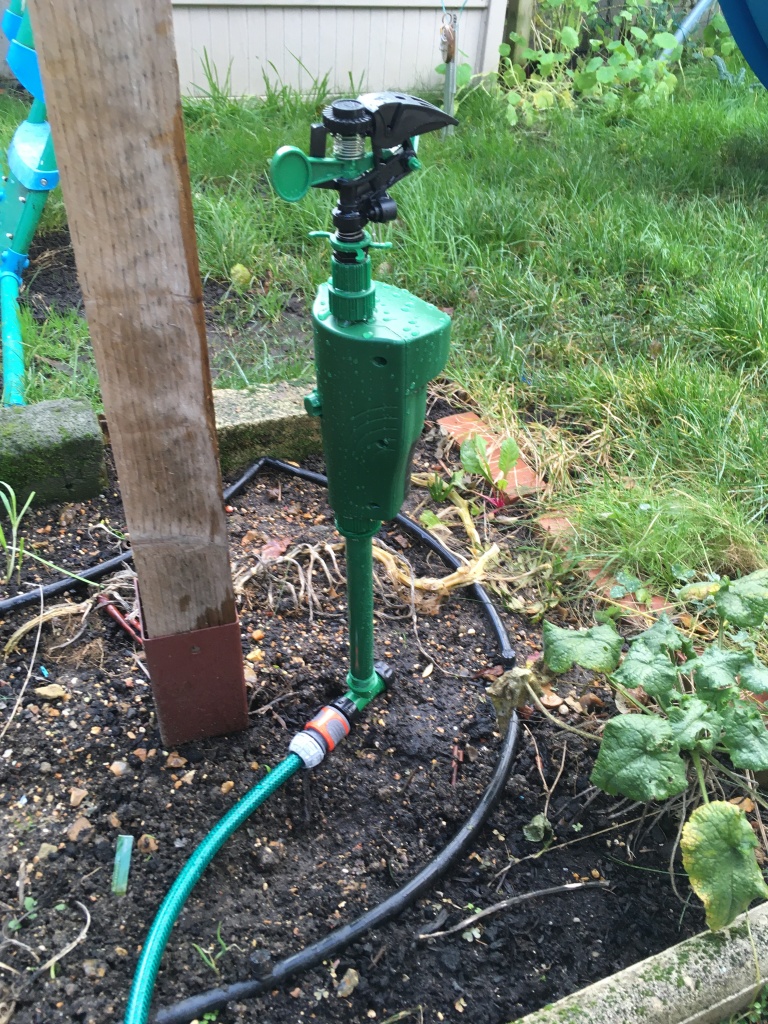
Thank you for all the tips!
LikeLiked by 1 person
Hope some of them work for you.
LikeLiked by 1 person
I was having similar cat poo problems last summer, I found the cat scarer that the RSPB sells has completely solved the problem. Now my biggest problem is the pigeons who aren’t being scared off by cats…
LikeLike
Oooo… Thanks. I’ve just looked it up. Our sonic cat scarer was a very cheap one. Maybe it was the device rather than the technology that wasn’t working for us. Despite living in London we don’t have a big pigeon problem. Maybe it’s the cats. Though last time after the cats stopped pooing we still didn’t get our seedlings destroyed by pigeons. I suspect the pigeons would be big enough to set of the water spray too. I know they are around. I hear their pitter patter and cooing on the roof sometimes.
LikeLike